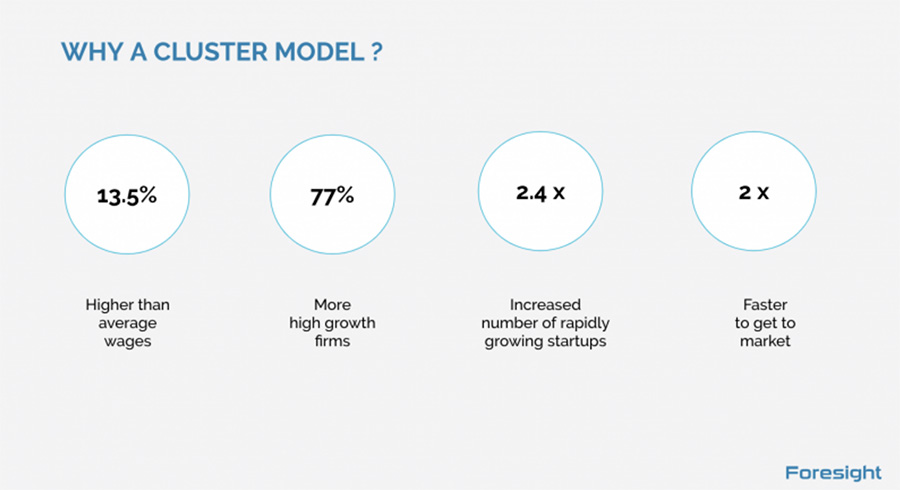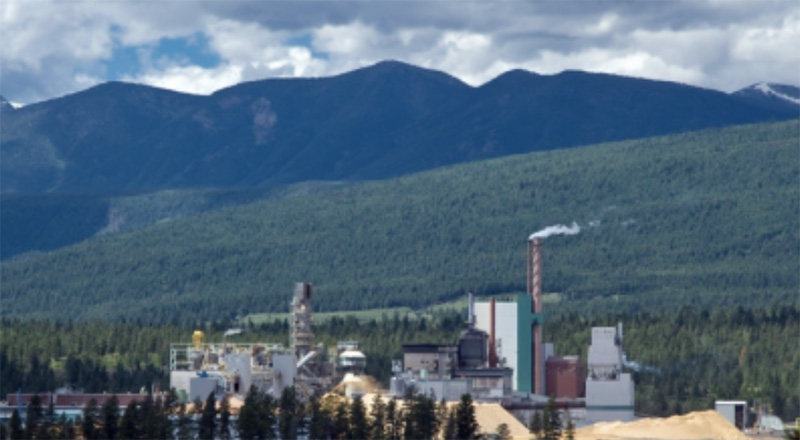Image: Catriona Power, Foresight Director of Strategy & Partnerships, at Globe 2020 Cluster Announcement event on Feb 11, 2020
The SHIFT - A Three Part Series on the CORE Cleantech Cluster
Part 1 - BC Emerges as a CORE Cleantech Leader
Catriona Power, Director of Strategy & Partnership at Foresight Cleantech Accelerator Centre, announced the vision, framework and initial results/ recommendations for a Cleantech Cluster Organization in BC at the Globe 2020 event in Vancouver on Feb 11, 2020.
Emerging Leadership
The presentation started with an overview of the research that shows BC as a leader in cleantech:
- 290+ cleantech companies in BC
- $2.5 billion USD cleantech deals over 3 years
- $2.5 trillion global cleantech activity by 2022
- 50% local companies exporting abroad
The BC Cleantech industry has many of the characteristics of an emerging cluster - firms are interacting, investment is coming into the sector, we’re seeing spinoffs from the universities, collaborations and innovation programs are in full-speed ahead mode, made-in-BC companies are growing, and new companies are choosing to locate here as well. Overall, a good news story for the province, as emerging clusters are an economic opportunity.
Clusters Work!
An emerging cluster is an economic opportunity because, once identified, they can be energized to support innovation and growth. Power highlighted research from the EU Cluster Observatory that shows how a cluster organization can energize an industry:

The 6 Significant Sectors: Where We Play Big
One of the key indicators of a solid cluster organization is that it is strategic and designed around the strength in a region (in other words, not reinventing the wheel, just adding power and energy to it so it rolls along faster).
The research project that drove the formation of the cluster vision involved diving into the cleantech players in BC and finding out the sectors where we are ‘playing big’ in cleantech and have the biggest potential for impact. Here they are:
- Transportation
- Natural Resources
- Energy
- Industrial Efficiency
- Agriculture
- Built Environment
Challenges Ahead

However, while there are a lot of good news stories, and significant opportunities, we believe that more can be done to catalyze innovation and growth in cleantech, encourage adoption and commercialization of these technologies and mitigate economic risk due to climate change. Many solutions will require new and more collaborative approaches, beginning now and continuing over the long term, in order to address key shared challenges.
Some of these challenges include: information Gaps (between the various stakeholders in the regional ecosystem, and in the international story we are telling about our cleantech industry), gaps in networking opportunities (locally, nationally, internationally), programming gaps (for funding/mentoring startups and growth companies, scaling up, facilities), and gaps in industry adoption.
The emergent cleantech cluster that has arisen in this province is at the point where it must be energized and organized in order to solve these challenges, fill in these gaps and really drive innovation and growth in cleantech.
Rising to the Challenge: The Vision and Goals of CORE Cleantech Cluster
See Part 2 of this series “Rising to the Challenge: the Goals of the CORE Cleantech Cluster” for an overview of the vision and goals of BC’s CORE Cleantech Cluster.



